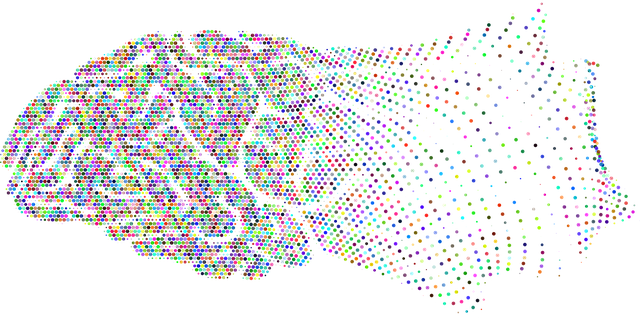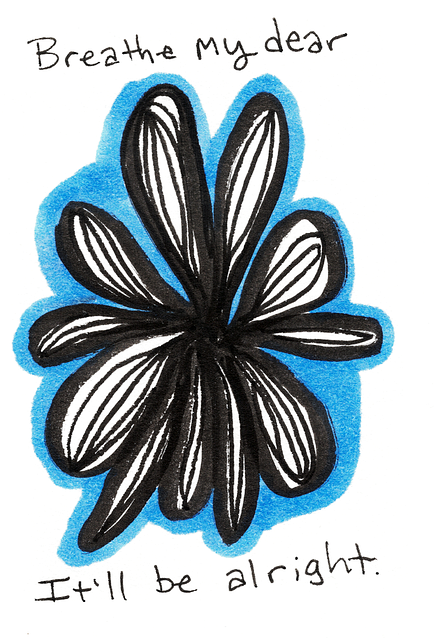When marketing mental wellness apps for young children with eating disorders, focus on providing tailored therapy sessions that engage kids through gamified elements. Emphasize privacy, reduce stigma, and encourage open conversations about mental health. Utilize social media, influencers, and podcasts to reach parents effectively while advocating for progressive mental health policies. Track KPIs like downloads and user retention to ensure the app addresses unique needs of this demographic, promoting positive behavioral shifts and preventing depression.
In today’s digital age, mental wellness apps offer a promising approach to support young children with eating disorders. This article guides you through developing an effective marketing strategy for such apps. We’ll explore how to understand your target audience—youngsters facing eating disorders—and craft compelling unique value propositions. Discover optimal marketing channels and strategies for outreach while emphasizing the importance of measuring success through key performance indicators (KPIs). Key SEO keywords, including “therapy for young children eating disorders,” are seamlessly integrated for enhanced discoverability.
- Understanding the Target Audience: Young Children with Eating Disorders
- Crafting a Unique Value Proposition for Your Mental Wellness App
- Marketing Channels and Strategies for Effective Outreach
- Measuring Success: Key Performance Indicators (KPIs) for Your Campaign
Understanding the Target Audience: Young Children with Eating Disorders

Understanding the target audience is a crucial step in developing an effective marketing strategy for mental wellness apps, especially when focusing on young children with eating disorders. This demographic presents unique challenges and requires tailored approaches to ensure successful engagement and therapy outcomes. Eating disorders among youth often stem from complex psychological, social, and familial factors, making it imperative that any app-based solution be designed with their specific needs in mind.
Marketing efforts should emphasize the app’s ability to provide accessible and engaging therapy sessions for young children. Incorporating features like gamified exercises, interactive storytelling, or multimedia resources can make therapy more appealing and effective. Additionally, promoting the app as a supplementary tool that supports traditional therapy methods, alongside highlighting its convenience and discreet use, will cater to parents’ concerns about privacy and stigma. Effective marketing will also address the broader issue of mental wellness for children, encouraging open conversations around self-care routines and mental health journaling exercises, while subtly introducing the app as a supportive resource throughout these practices.
Crafting a Unique Value Proposition for Your Mental Wellness App

In today’s digital age, mental wellness apps are becoming increasingly popular as people seek accessible and personalized support for their emotional well-being. When developing a marketing strategy for your mental wellness app, crafting a unique value proposition is essential to stand out in a competitive market. Your value proposition should clearly communicate the benefits and solutions your app offers, especially when targeting specific demographics like young children or those dealing with eating disorders. For instance, highlight how your app provides therapy tailored to young minds, offering engaging and interactive anxiety relief tools and communication strategies that foster open dialogue between parents and children.
By focusing on these unique selling points, you can attract users seeking effective yet age-appropriate resources for improving mental health. Incorporate self-awareness exercises designed for children into your app’s features to demonstrate its comprehensive approach to well-being. This targeted marketing strategy not only helps your app reach the right audience but also ensures that users perceive your offering as a specialized and valuable solution for their specific needs, setting your app apart from general wellness applications.
Marketing Channels and Strategies for Effective Outreach

In the digital age, marketing channels for mental wellness apps, particularly those catering to young children with eating disorders, have expanded exponentially. Social media platforms like Instagram and TikTok offer opportunities to engage parents and caregivers through insightful content, success stories, and targeted ads. Collaborating with influencers in the health and parenting niches can also amplify your app’s reach, especially when addressing sensitive topics like therapy for young children with eating disorders.
Diversifying marketing strategies is key to effective outreach. Consider integrating a Mental Wellness Podcast Series Production to educate listeners about various mental health issues, including anxiety relief techniques. This medium allows for personal storytelling and expert interviews, fostering trust and connection. Additionally, engaging in Mental Health Policy Analysis and Advocacy can position your app as a progressive resource, attracting users committed to holistic mental wellness solutions.
Measuring Success: Key Performance Indicators (KPIs) for Your Campaign

Measuring success is a vital component of any marketing campaign, and when it comes to promoting mental wellness apps, especially those catering to young children with eating disorders, defining Key Performance Indicators (KPIs) is essential. These KPIs will guide your strategy and help you understand if your efforts are making a positive impact on user engagement and outcomes. For instance, tracking the number of downloads of your app can be a primary metric, indicating how well your marketing reaches its target audience.
Additionally, considering metrics like user retention rates—how many people continue using the app over time—and changes in user behavior post-app interaction, such as an increase in parental discussions about mental health or improved access to therapy for young children with eating disorders, can offer valuable insights. These KPIs, coupled with regular risk management planning for mental health professionals and possibly evaluating the impact of a Mental Wellness Podcast Series Production, will help tailor your strategy to ensure it aligns with the unique needs of this demographic while effectively preventing depression.
Developing a comprehensive marketing strategy for a mental wellness app focused on young children with eating disorders requires a deep understanding of the target audience and their unique needs. By crafting a compelling unique value proposition, leveraging effective marketing channels, and measuring success through relevant KPIs, you can ensure your app reaches those who need therapy for young children eating disorders. This strategic approach not only enhances awareness but also fosters a supportive environment for vulnerable individuals.














